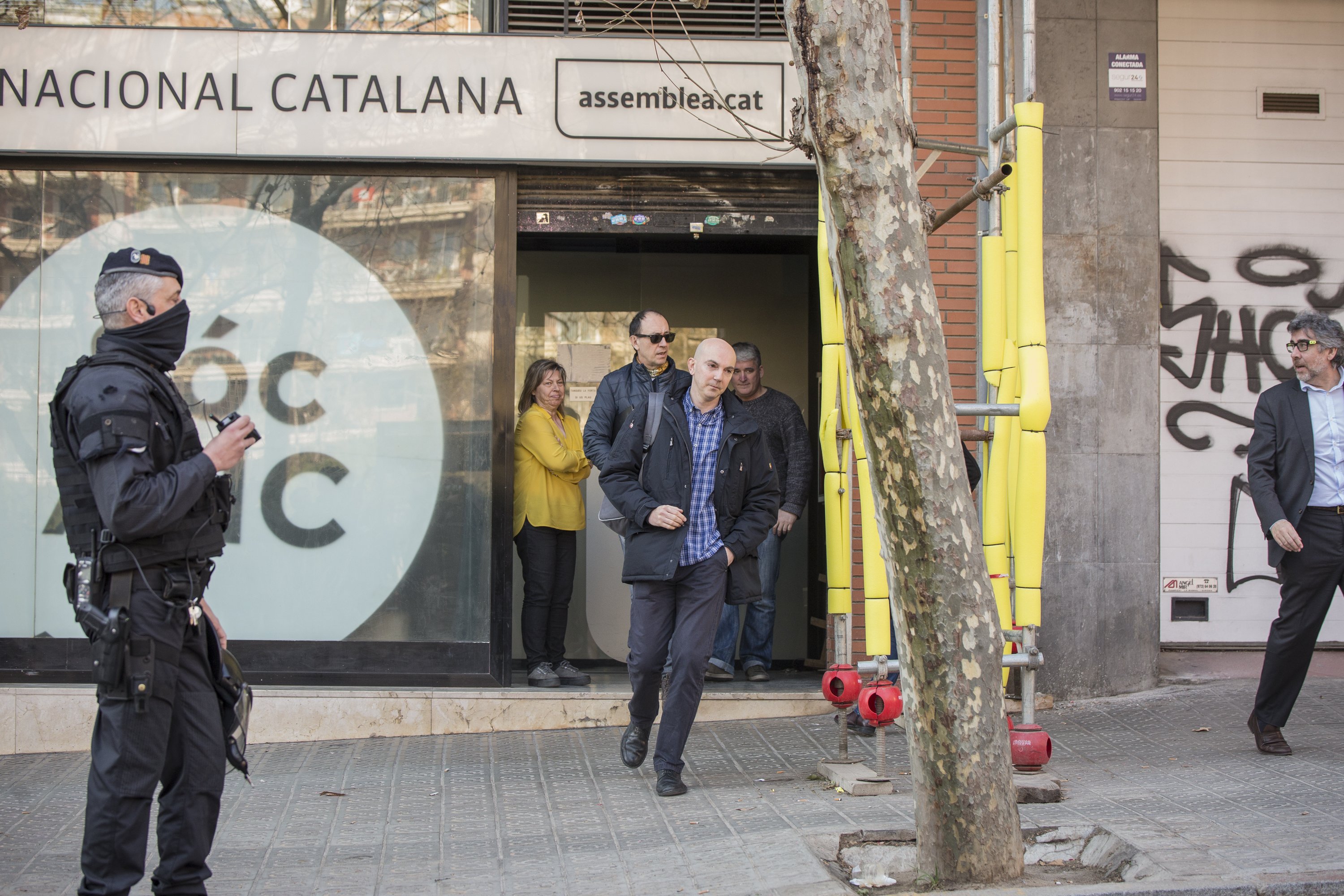The Civil Guard copied emails sent since 2016 by presidents Carles Puigdemont and Artur Mas and vice-president Oriol Junqueras, as well as the rest of the Catalan government and the former members of the Parliament's Board, by order of Supreme Court judge Pablo Llarena during this Thursday's searches of the headquarters of ANC (Catalan National Assembly), Òmnium Cultural and the CTTI (Telecommunications & Information Technology Centre).
The judge issued the order on 11th January this year alongside a gag order on that section of the case investigating the lead-up to the unilateral declaration of independence in order to have "access [to], examination and analysis of the electronic correspondence" of various suspects. Once the searches had been carried out and the emails copied, Llarena lifted the injunction. The operation, Llarena writes, aimed to "confirm or refute the available evidence".
The period cited in Llarena's order runs from 28th April 2016 to 27th October 2017, the day the Republic was proclaimed.
The Civil Guard copied emails not just from the above-mentioned politicians, but also from the leaders of pro-independence organisations ANC and Òmnium Cultural, Jordi Sànchez and Jordi Cuixart, as well as people newly under investigation like ERC secretary general Marta Rovira and former CUP spokesperson Anna Gabriel.
As for politicians, beyond those already mentioned, also affected were the president of Junts pel Sí, Lluís María Corominas; CUP deputy Mireia Boya and the president of the Association of Municipalities for Independence, Neus Lloveras. They were joined by the Economy secretary of the Vicepresidency and Economy ministry, Pere Aragonès; the managing director of Òmnium, Joan Vidal; the president of the Institure of Self-governance Studies, Carles Viver; the head of the Secretariat for the development of Self-governance, Víctor Cullell; and the head of the Office for the Improvement of the Institutions of Self-government.
The judge notes that evidence suggests there was an agreement between those under investigation: "the referendum was carried out after numerous calls for public mobilisation from the political parties, as well as representatives of the ANC, Òmnium and AMI". This led to certain "coercive or violent" incidents like events on 20th September in front of the Economy ministry, the judge says.

